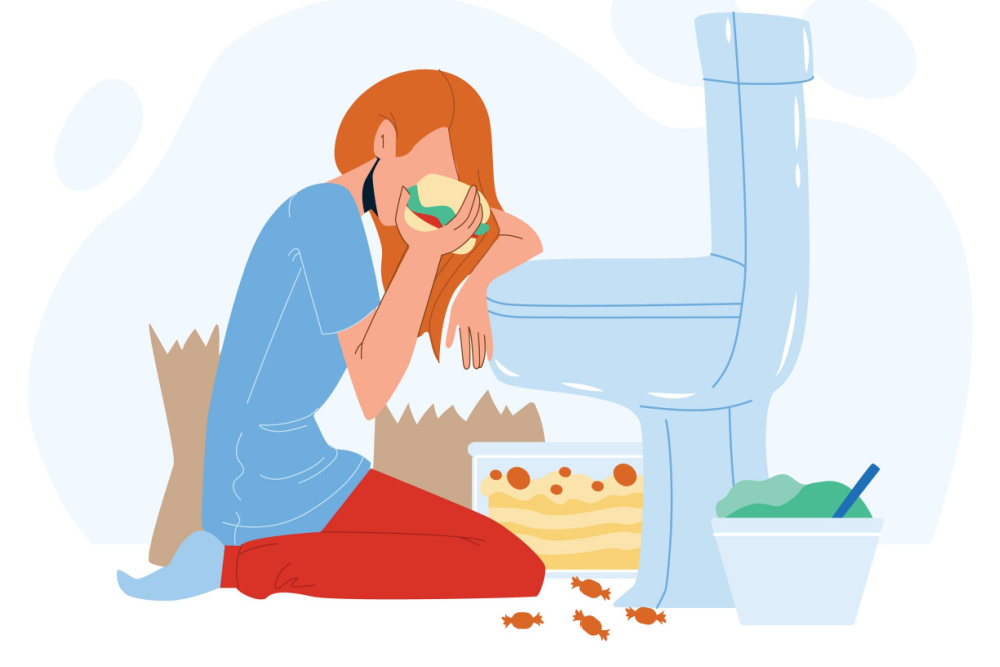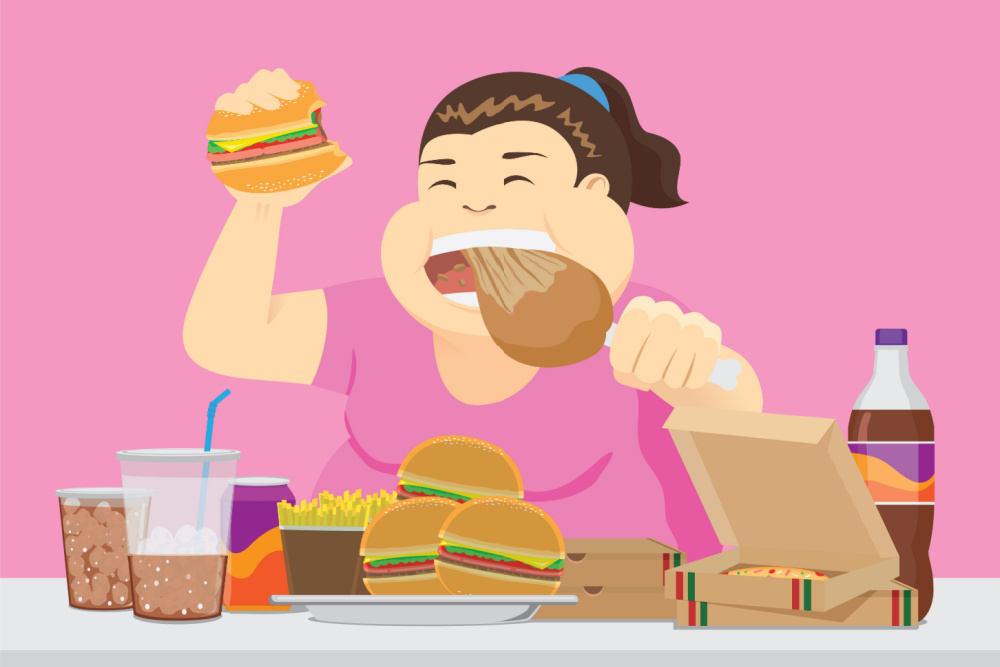
Eating disorders, or what is commonly known as eating disorder , is a condition where sufferers have a tendency to behave in abnormal eating patterns and are accompanied by emotional disturbances. Eating disorders can be experienced by all age groups, but most often occur at the age of 25-29 years (Global Burden of Disease, 2019). This condition can occur in several aspects, starting from obsession with food, weight, and body shape. So, eating disorders can be characterized by a person's obsession with food or weight and body shape.
Types of Eating Disorders
1. Anorexia Nervosa

Anorexia nervosa is a disorder that occurs when a person has a body weight that is much lower than their normal body weight and is accompanied by fear of gaining weight. Usually, sufferers of this condition will continue to think they are overweight so they will limit their food intake. In fact, the reality is that they are thin or even too thin.
Anorexia sufferers can be characterized by several symptoms, such as:
- Losing weight and being very thin compared to other people of the same age and height
- Limiting eating patterns
- There is a deep fear and avoidance of gaining weight even though he is underweight
- Resistance to maintaining a healthy weight
- Body weight or body shape is seen as self-esteem
With minimal calories obtained by sufferers, anorexia can cause sufferers to experience various health-related complaints such as dry skin, hair loss, body weakness, irregular menstruation, low blood pressure, heart rhythm disturbances, brain damage, and even depression or even death.
2. Bulimia nervosa

In contrast to anorexia sufferers who reduce their food intake and calories, bulimia nervosa sufferers have a tendency to overeat until they are full or even unable to eat again for a certain period of time. Then, sufferers will throw away the food they have just consumed in an unhealthy way. Some of the methods often used by bulimia sufferers are forcefully vomiting food, taking laxatives or diuretics, fasting, and excessive exercise.
The following are some of the symptoms often experienced by bulimia sufferers:
- Periods of overeating and uncontrolled eating that recur over a period of time
- Repeatedly cleansing oneself/excreting food in an unhealthy way
- Body shape and weight are seen as self-esteem
- Acute fear of gaining weight even though you already have a normal weight
Due to the compulsion to expel food from the body, a bulimia sufferer can experience several physical problems such as pain in the throat, swelling of the face or glands in the jaw, menstrual disorders, damaged teeth, and even bleeding gums.
3. Binge Eating Disorder

As the name suggests, binge eating disorder is a condition that occurs when an individual experiences the disorder of overeating without forcing the food out. Someone who experiences this condition tends to have a regular eating pattern, but with uncontrolled portion sizes and consuming large amounts of food in a short time.
Some of the symptoms are:
- Can eat large amounts of food very quickly and calmly until full
- Can't control myself while eating
- Feelings of depression arise such as shame, disgust, and even guilt when remembering the excessive eating behavior experienced
- Not balancing diet with exercise
The large amount of food and calories that enter the body without balancing it with exercise causes sufferers of this condition to become overweight or even obese, which can lead to other, more serious health problems.
Eating Disorder Treatment
To treat eating disorders , you need help from a team consisting of doctors, psychiatrists and nutritionists. The main goal of this treatment is to help eating disorder sufferers have a healthy eating pattern. Some efforts that can be taken include psychotherapy, medication, and consultation with a doctor or nutritionist.
These are several types and varieties of eating disorders, symptoms, impacts and treatment. If you or your closest relatives experience similar symptoms, immediately consult the nearest trusted doctor.
Article written by dr. Eva Suryani, Sp.KJ (Psychiatric Medicine Specialist / Psychiatrist at EMC Alam Sutera Hospital).
